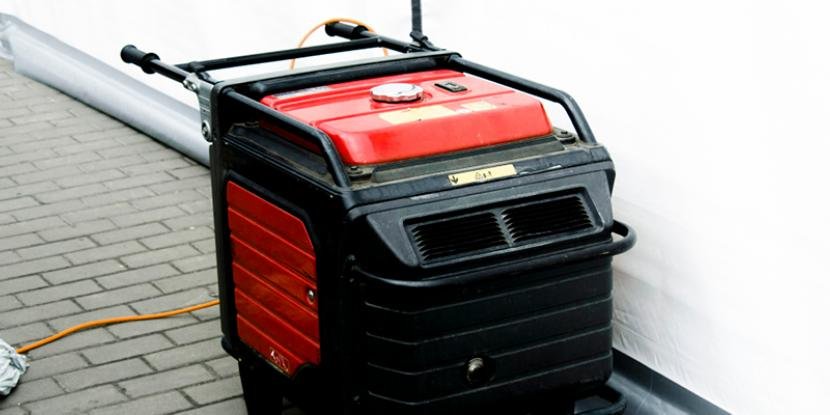[ad_1]
Is it cheaper to run a generator than it is to power your home from the grid? Mr. Electric has crunched the numbers on the cost of running a generator. What will they reveal?
Is Running a Generator More Expensive?
Since electricity rates as well as the cost of fossil fuels like natural gas, propane, and gas, and diesel vary from state to state, and generators offer varying degrees of provisional power, from covering essentials to your entire home’s needs, calculations can be a bit tricky. Below, however, we have some average figures based on current estimates to help give you an overall picture of operational costs when used to calculate fuel costs:
- Cost of Gasoline Generator Operation
Loading up a gasoline generator for a tailgate party? Gas-fueled generators are not the most cost-efficient energy option. With an average gasoline price of $2.89 (July 2018 estimates) and the typical 5-kilowatt generator used to power only ‘survival appliances’ consuming approximately 0.75-gal/hour, running a generator for the day would consume about 18-gallons, racking up $52/day in fuel costs. - Cost of Diesel Generator Operation
Portable diesel options, based on an average cost of $3.17/gal in fuel and a 20-kilowatt generator capable of powering larger essentials such as HVAC, well pumps and water heaters consume about 1.6-gal/hour and would cost about $122/day in fuel costs. - Cost of Propane Generator Operation
A cleaner energy option than gas and diesel powered generators, propane, however, burns more quickly. It can also cost a bit more than gas when fueling your unit from 20-pound tanks. If you have a large tank on-site, however, calculations shift. A 20-kilowatt portable generator burning about 3.45-gal/hour would consume about 83-gallons in a day, racking up over $200 in fuel costs. On-site tank? You can eke out a bit more power with a 22-kilowatt standby generator (which automatically kicks in when power goes out, as opposed to a portable model), burning about 3.6-gal/hour under full load for just over $200/day. - Cost of Natural Gas Generator Operation
For areas prone to power outages and an available natural gas hookup, a ‘whole house’ standby generator offers more efficient electricity generation. With a cost of approximately $3.26 per thousand cubic feet, operational costs will vary based on generator size, in the $20-40 day range:- 7-kilowatt portable generator:
Uses up to 118-cubic feet/hour, costing about $0.82/hour of operation. - 15-kilowatt portable generator:
Uses up to 245-cubic feet/hour, costing about $1.71/hour of operation.
- 7-kilowatt portable generator:
How Much Does (Equivalent) Grid Power Cost?
You probably have a basic idea as to what you spend daily on electricity given your monthly utility bill. Though, as with fuel, electricity rates vary by state/region, the most recent statistics on average electricity costs nationwide, given 2017 data, put the average monthly bill at $111.67. Divide that by 30-days/month, that equates to about $3.72/day or $0.15/hour for grid-based power.
What’s Better, Grid or Generator Power?
It doesn’t take a math whiz to quickly figure out grid power is far cheaper than the daily cost of running a generator via any fuel type. In general, the convenience of using power from the grid and lower costs make it a more practical option in the long run. Grid power is also more environmentally friendly than running a generator. That being said, despite the additional cost, most would still consider forking out a little more to fuel a generator in order to ensure power in the event of an outage a worthwhile investment.
Not sure which generator is the best solution for meeting your home and family’s needs? The team at Mr. Electric can help you decide, answering essential questions and providing a free installation estimate. Contact us to learn more today.
This blog is made available by Mr. Electric for educational purposes only to give the reader general information and a general understanding on the specific subject above. The blog should not be used as a substitute for a licensed electrical professional in your state or region. Check with city and state laws before performing any household project.
[ad_2]
Source link
